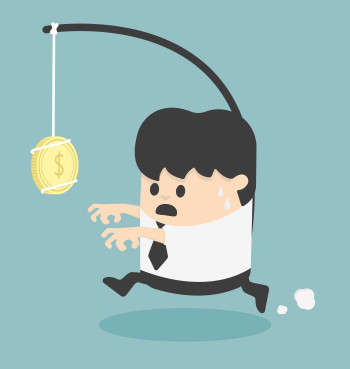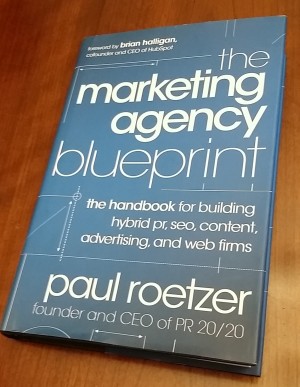Marketing Agency San Diego Los Angeles San Francisco
Understanding The Marketing Service Ecosystem
If you’ve ever wanted to launch your own marketing agency, in San Diego, Los Angeles or Boston, you’ll be glad to know I’ve worked for those who have done it. They became quite wealthy and enjoyed fantastic exposure to the latest technology, ideas and had money to travle worldwide. There’s a lot of benefits.
If you like the idea, then Paul Roetzer’s new book The Marketing Agency Blueprint should be a vital and fascinating resource. And I might add that my new book and services might be part of your future too.
The Marketing Agency Blueprint is chock full of ideas, advice and resources on how to build a successful digital marketing agency. The market for marketing agency services is increasingly complex so this type of book is excellent for clarifying goals and building a plan of attack.
Just about everyone and their grandmother is launching a marketing company today, so if you’re serious, you’d better get a copy of this book. Roetzer describes a new type of agency that uses the best available media channels to win. He says pure play digital agencies will likely go out of business along with traditional agencies.
This is a disruptive, bold approach for marketing businesses, and I suspect it will require a good deal of confidence for many agency owners to implement his new era plan. Even if you don’t follow it, you’ll learn a good deal from this book.
The Marketing Agency Blueprint
What’s exciting about Roetzer’s treatise is its insight into the marketing services ecosystem. You’ll understand how marketing is changing and how agencies must evolve to excel in this era. Roetzer emphasizes an agency’s willingness to be entrepreneurial, tech savvy, open to change, and execute faster than competitors as keys to success.
I would counter that excellent new business development strategies, powerful UVP, a relevant brand, giving, networking, reaching influencers, customer awareness, and excellence in choosing clients are vital. But you’ll find he does address some of these matters.
He says top agencies will pivot on the depth, versatility, and drive of their talent. Yet that discussion actually opens up the weakness of the book and some of his recommendations, as I’ll point out below. As much as I like a book, idea or venture, to not understand its weaknesses is unwise.
The Real Problem: Clients are Doing Things In-house
Roetzer doesn’t get into too much about how to get rid of the current nemesis —- the in-house specialista. In-house specialistas are replacing marketing agencies. They’re in the driver’s seat, have lots of time, inside knowledge of the client’s business, and the boss’s belief that in-house is the way to go.
Another issue is that clients are giving up on traditional advertising and turning more to integrated, multichannel marketing. However, this book does guide you in how to become relevant again and build the confidence to really delve into clients mindset so you can “create” a new client out of one you’re losing your grip on.
What is his solution really? Hire versatile, skilled talent and use a marketing platform to provide solutions faster and more adeptly.
Hybrid Agency – Adapting to Provide the Ultimate Service
The book discusses how a new hybrid agency business model will guide successful new agencies. This isn’t really new, but I do think his book clarifies the matter.
In Chapter 2, he describes agency models and which attributes of them are worth saving. Strangely, in Chapter 1, he suggests revenue production should replace billable hours as the payment model. This bizarre reordering of Chapter materials is disorienting, but I’d advise skipping past Chapter 1 and come back to it later. He offers plenty of other disruptive ideas which you and your clients may or may not like.
In Chapter 3, a very good one, he discusses how to assess excellent talent which he dubs “Hybrid Pros.” However, he doesn’t discuss how to motivate and compensate Hybrid pros. This last point hurts his credibility a lot. Are we supposed to keep compensation strategy old school while we change everything else? How does that make sense? It’s almost as though he doesn’t like where his own disruptive, innovative system is leading, or that his own employees will be reading his book.
Here’s Some More Money. But I Don’t Want Money

I’ll help Paul out on this one. If you’re going to motivate employees to learn, perform, be creative and engaged, keep them from jumping ship, and dedicated to the “team is everything” theme, you have to compensate them and let them create a work life that lets them access 100% of their potential.
Star Hybrid Pros will want a good salary but they want other benefits too.
Employees and their specific lifestyle, learning style, desire for experience and engagement, and unique motivational rewards have to underpin your business model.
Such incentivizing is certainly part of Google’s business model and is how they foster creativity and imagination.
Optimally, you have to give them freedom to add value, grow and feel empowered. This way, they will generate the revenue you’ll need to pay them. Basically, they’ll pay themselves and you’ll get a sizable cut.
There are 7 more chapters including building a scalable infrastructure, controlling the sales funnel, and optimizing inbound marketing strategy. There’s plenty more insights from Roetzer to filter through. I’m going to explore all of it further chapter by chapter because I think it answers a lot of questions, and stimulates interesting thought on how to run a business today.
The Marketing Agency Blueprint is a good read for anyone in business, even those who don’t need a marketing agency. A great book by Paul Roetzer who is now fully involved in AI Marketing with his new businesses.
I hope we’ll speak soon to collaborate to help you build the most cost effective yet productive digital marketing agency. Let’s talk now at 416 998 6246.
I serve clients in San Diego, Los Angeles, San Francisco, Sacramento, San Jose, and Phoenix.
Investigate Advanced Search Engine Optimization SaaS Software Marketing | SaaS Travel Marketing | Digital Marketing Consultant

